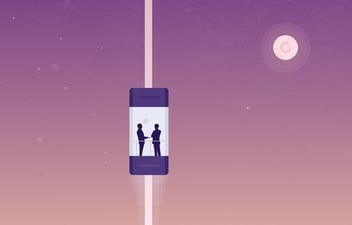An Inherently Complex Industry
To begin, healthcare and medicine as a whole is notorious for being a particularly complex industry. One reason for the industry’s complexity is the variety of stakeholders in the mix, including:
-
Insurance companies
-
Medical professionals
-
Patients and consumers
-
Drug manufacturers and distributors companies
-
Government regulations
On top of that, because the industry deals with our public’s well being, health, and personal information, the rules are much more stringent than many other industries. You don’t have to look very far into the public and civil discourse to see that healthcare reform is constantly at the center of the conversation. However, agreeing on exactly how to reform our healthcare system has been a long and constant struggle. All of these conflicts and discussions impact and add to the complexity of the industry.
Complexity Bleeding into Healthcare Application Development
This complexity naturally carries over into custom mobile app development as well. Most healthcare institutions are under strict guidelines that they must follow, while also balancing the specific rules, restrictions, and needs of different parties. Therefore, most healthcare applications will have to be built and optimized for the use of multiple parties, including:
-
Doctors and nurses while working with patients
-
Healthcare administrators who need to organize and manage data
-
Insurance companies who need to verify the procedures completed and compensation needed
-
Patients and consumers who need to get timely information about their own healthcare records
Many applications don’t have nearly this many requirements or different categories of users, so they are often more simple to build and use. By balancing all these different user types, healthcare applications become inherently more complex. Developers must strike a balance between including all the features that different parties need, and keeping the application fast, secure, and user-friendly.
Strict Security Guidelines from HIPAA
HIPAA, the infamous overarching regulation when it comes to app development in the healthcare industry, outlines the lawful use and disclosure of protected health information (PHI). HIPAA compliance is extremely important, as failure to protect patients’ private information can lead to compromising the patients’ privacy, as well as serious legal implications for healthcare practitioners.
Transgressing or failing to adhere to HIPAA regulations can lead to steep and harsh penalties for healthcare institutions, ranging from expensive fines to jail time. Therefore, on top of balancing many different user parties, developers must also ensure that any healthcare application they build follows HIPAA guidelines. Because of the steep penalties, many businesses would rather ensure that their applications are as secure as possible. As a result, inexperienced application developers can often sacrifice usability in order to minimize any risk of violating HIPAA policies.
If you want to learn more about the complexity of healthcare applications, Vincit’s head of development, Mikko Salokangas, has talked about this extensively in his piece Consideration for Mobile Health App Development.



